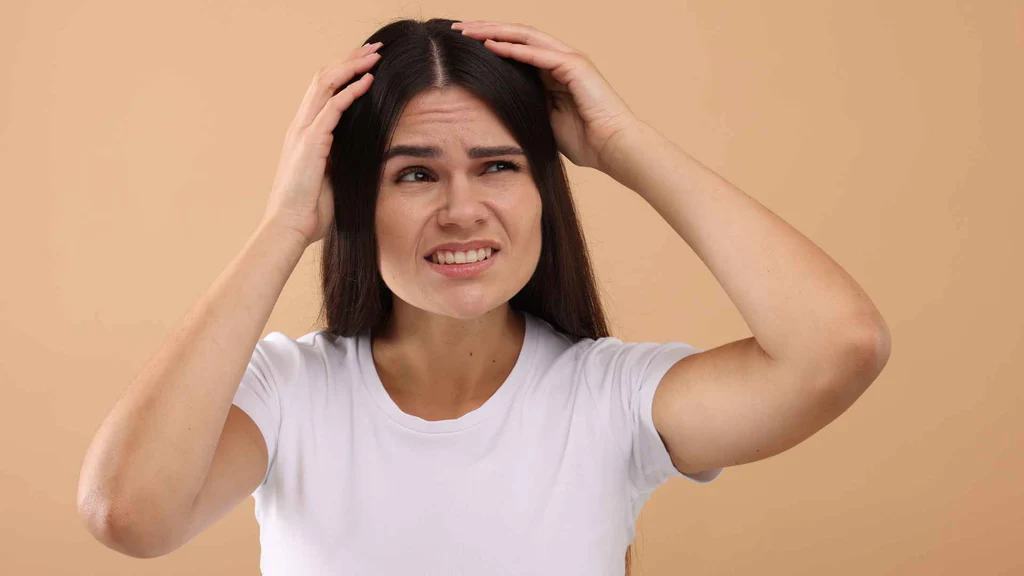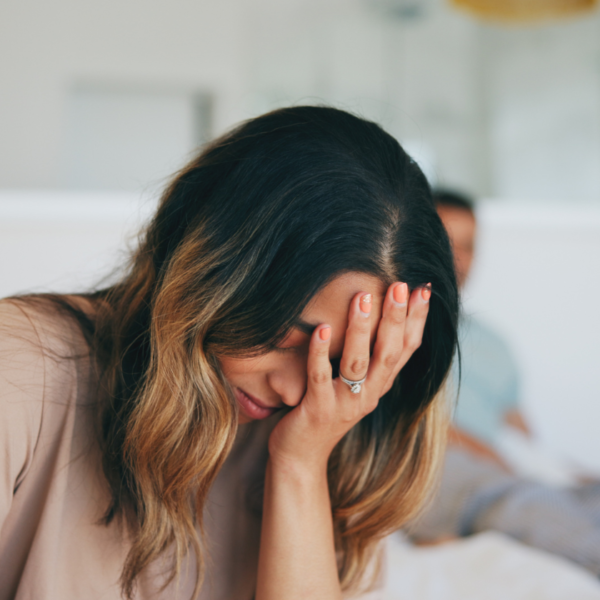An itchy scalp is something almost everyone experiences at some point, but did you know it can actually be your body’s way of signaling an underlying issue? While many people dismiss scalp itchiness as a minor irritation, it often points to things like allergies, stress, poor nutrition, or even more serious health conditions. Paying attention to this symptom can help you protect not only your scalp but also your overall well-being.
Here are 20 possible reasons why your head itches and what your body may be trying to tell you:
1. Dry Skin and Dehydration
When your body lacks enough hydration, your scalp can dry out, leading to flakiness and itching. Drinking water regularly and using gentle shampoos can restore moisture.
2. Product Sensitivity
Shampoos, conditioners, and styling sprays often contain chemicals or strong fragrances that irritate the scalp. If itching occurs after trying a new product, your body may be signaling an allergic reaction.
3. Dandruff
The most common reason for scalp itchiness is dandruff, caused by an overgrowth of yeast on the scalp. It’s your body’s way of showing that the natural balance of your skin is disturbed.
4. Seborrheic Dermatitis
A more advanced form of dandruff, this condition causes redness, greasy flakes, and constant itching. It’s a sign that your scalp needs medical attention.
5. Scalp Psoriasis
If you notice thick, scaly patches along with itchiness, it may be psoriasis. This is your immune system sending signals through your skin that it’s overactive and needs proper treatment.
6. Stress and Emotional Pressure
Stress doesn’t just affect your mind; it also affects your body. An itchy scalp during stressful times can be your body’s way of asking you to slow down and manage anxiety.
7. Poor Scalp Hygiene
Not washing your hair often enough leads to oil buildup, sweat, and dirt that irritate the scalp. The itchiness is your body’s reminder to maintain cleanliness.
8. Overwashing and Harsh Shampoos
On the flip side, washing too frequently or using strong shampoos can strip the scalp of natural oils, leaving it dry and itchy. Balance is key.
9. Head Lice
While less common in adults, lice can cause severe itching, especially around the ears and neck. Your body uses itchiness to alert you to their presence.
10. Fungal Infections
Scalp ringworm or other fungal infections cause red patches, itching, and sometimes hair loss. This is a strong signal to seek antifungal treatment.
11. Sunburn
If you’ve been outdoors without head protection, your scalp can burn just like any other part of your skin. The itch is your body signaling skin damage from UV rays.
12. Nutrient Deficiencies
A lack of essential vitamins and minerals, such as zinc, vitamin B, and omega-3s, can lead to dry, itchy skin. Your body is telling you it needs better nutrition.
13. Excessive Sweat
Sweating too much, especially after exercise or heat exposure, can cause scalp itchiness. This is your body’s way of asking for cleansing and cooling.
14. Hormonal Imbalances
Changes in hormones, especially during pregnancy, menopause, or thyroid issues, may cause scalp irritation. Itchiness can be one of the first signs.
15. Allergies from Fabrics or Hats
Sometimes the culprit is not your shampoo but your hats, scarves, or pillowcases. Fabrics treated with dyes or chemicals can trigger allergic reactions.
16. Environmental Factors
Exposure to pollution, dust, or extreme weather conditions can irritate the scalp. Your body may be responding to these environmental stressors with itchiness.
17. Buildup of Styling Products
Using too much gel, spray, or mousse can clog pores on the scalp, causing irritation and itch. This is your body signaling that your scalp needs to breathe.
18. Underlying Skin Conditions
Conditions like eczema or dermatitis can also affect the scalp. Persistent itching is your body’s call for a dermatologist’s help.
19. Nerve Issues
Sometimes, scalp itching may not come from skin issues but from nerve-related conditions. This could be linked to conditions like shingles or nerve irritation.
20. Early Warning Sign of Infection
In rare cases, scalp itchiness accompanied by swelling, sores, or pain could signal an infection that needs urgent medical attention.
Final Thoughts
Your body has unique ways of communicating, and an itchy scalp is one of them. While it may often result from dryness, product sensitivity, or poor hygiene, it can sometimes point to stress, nutrient deficiencies, or even more serious conditions. By paying attention to this signal and responding with proper care, you can protect not just your scalp but also your overall health.



Sign up